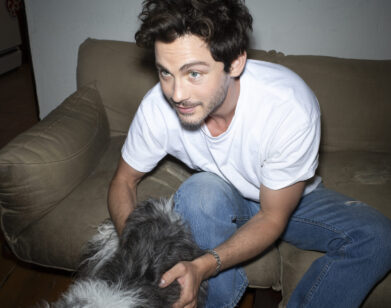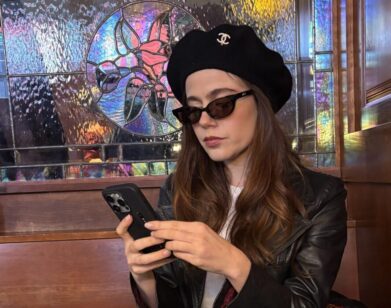it's L.A.
Rachel Sennott Wants It All
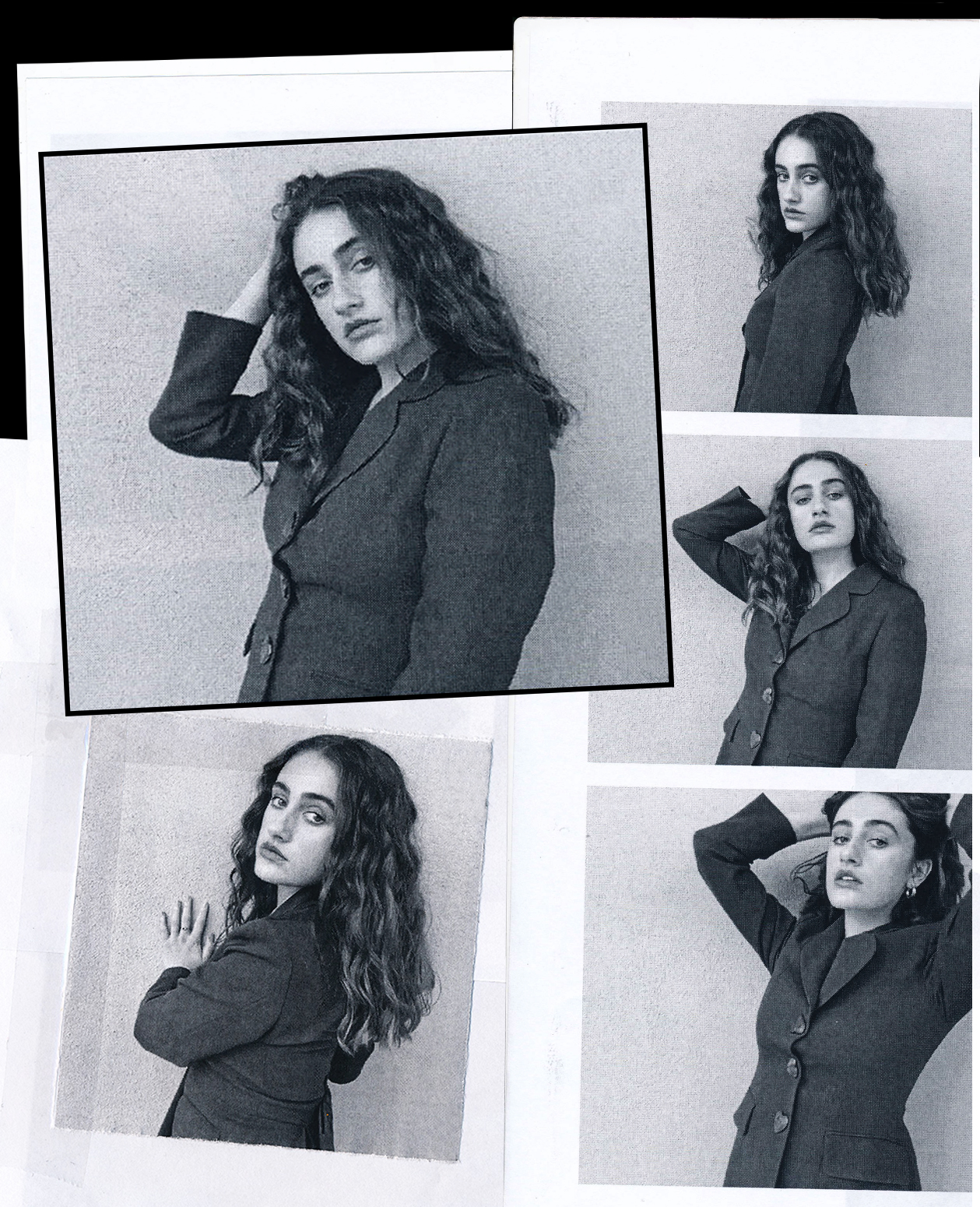
Rachel Sennott first appeared to me on my screen, as I scrolled Instagram in 2018; shortly after, I realized that she was often the funniest person in the room on any given night in New York City’s alt-comedy scene. Viral tweets and Instagram selfies shaped Rachel Sennott into the ideal relatable woman: the kind that’s self-aware, funny, and, of course, hot. Now in Hollywood, Rachel stars in the ABC comedy series Call Your Mother opposite Kyra Sedgwick. She is also an indie darling, playing college senior Danielle in the adapted-from-a-short-film Shiva Baby, where she sits shiva with her parents as she alternatively confronts and hides her impending graduation sans job offer, her side gig as a sugar baby, and her ex Maya, played by Molly Gordon. Praised as “Gloria Steinem reporting undercover from the Playboy Club,” Sennott is also a marvel of vulnerability, flawlessly in control of her image with some of the most expressive eyes in Hollywood. Ready for a big year, I caught up with her and talked Shiva Baby, the ideal amount of children, and why NYU alumni are so annoying—except for her.
———
CARINA IMBORNONE: How are you, Rachel?
RACHEL SENNOTT: Absolutely charged up! I’m eating a salad.
IMBORNONE: The last time I saw you perform was at Recess’s pop-up comedy show.
SENNOTT: That was a million years ago. 50 people sitting jammed on the floor, drinking those little CBD cocktails. I miss that.
IMBORNONE: And now you have your first billboard in L.A., for Call Your Mother.
SENNOTT: I made my boyfriend take pics of my butt in front of it. More than needing a picture of the billboard, I needed an ass pic by the billboard. If you were in New York and did that, nobody would care, but here in L.A., some people honked.
IMBORNONE: It’s L.A.!
SENNOTT: It’s L.A.: everyone’s in their cars!
IMBORNONE: NY or L.A.—what’s your verdict?
SENNOTT: Oh my god, New York. I need to get out of here. Since coming to L.A., I scratched my rental car, I stabbed myself in the leg, it’s a pandemic. You don’t walk here—you can’t just run into someone.
IMBORNONE: You would have to drive right into them.
SENNOTT: Literally. You have to crash your car, and then you can meet someone spontaneously. But maybe I have not experienced the best version of L.A.
IMBORNONE: Well, I loved Shiva Baby. In the movie, the very opening scene has you in a powerful, yet vulnerable position—on top. It reminded me of how fearlessly you present yourself online, and I love that.
SENNOTT: First of all, thank you, because sometimes I think I’m going to get killed for tweeting. Maybe I need to tone down the tweets, because one of these days I’m going to tweet “kill me” and someone actually will. I didn’t feel comfortable in my sexuality and my body for a really long time, and when that flipped—obviously I don’t feel comfortable all the time, of course—but I try to maintain my voice online regardless of the show I’m working on. On Instagram, people are supposed to be hot and sexy but not aware of it. I try to make it a really active effort. I remember when teachers in school would tell you that colleges would get on your Facebook and find a photo of you flipping off the camera and you will never work for a day in your life. And I remember being like: this is true. There’s something freeing in being like, “too bad.”
IMBORNONE: I found the script that Emma Seligman wrote to be so powerful. In the film, it’s interesting how the straight relationship, not the gay one, is the one causing all the drama.
SENNOTT: Emma, my friend who wrote and directed the movie, is such a good writer. At the end of the day, with Molly’s character, Maya, even if there’s competitiveness, there’s also that rapport with someone that you care about, which I think you can see especially at the end. It’s very different with the main male interest, Max, and it’s very subtle at first.
IMBORNONE: Did any other films inspire you in the making of Shiva Baby? I was reminded of Thoroughbreds.
SENNOTT: Ooh! I love Thoroughbreds. Black Swan was the most influential for me, because in some ways it’s a comedy and in some ways it’s a horror film.
IMBORNONE: Shiva Baby is a little bit scary, in a funny way.
SENNOTT: Ariel Marx’s score does a lot of that work. And I love Molly Gordon—she’s such a good scene partner.
IMBORNONE: You and Emma went to school together at NYU; what do you think of the NYU stereotype?
SENNOTT: I get it. I can see why people think that. I think it’s true. It’s like when people say that people from L.A. are annoying, I’m like, but not me!
IMBORNONE: But you’re not from L.A.—you’re from NY!
SENNOTT: Yeah, from NYU. Sorry.
IMBORNONE: You’re specifically from the NYU region of New York.
SENNOTT: I would say that NYU people are annoying except for me.
IMBORNONE: If you could achieve one impression in your career, what would you want your thing to be?
SENNOTT: I think I would want to be known for playing unlikeable characters that you like anyway.
IMBORNONE: Your character Michelle is lovable, if not always the most agreeable. So, what’s your best advice on love?
SENNOTT: Never wear your hair up on a first date. When you go through a breakup, give yourself space to be messy and heal before you fall in love again.
IMBORNONE: What do you wear on a first date?
SENNOTT: My first date in L.A. I had no idea what to wear because people here go on dates at four in the afternoon, and they’re not even drinking. I wear a cord or a jean and then a boob top. Preferably a dark color. And then maybe a little sweater in a bag in case you get there and you’re like, I don’t even like this person. A little backup sweater.
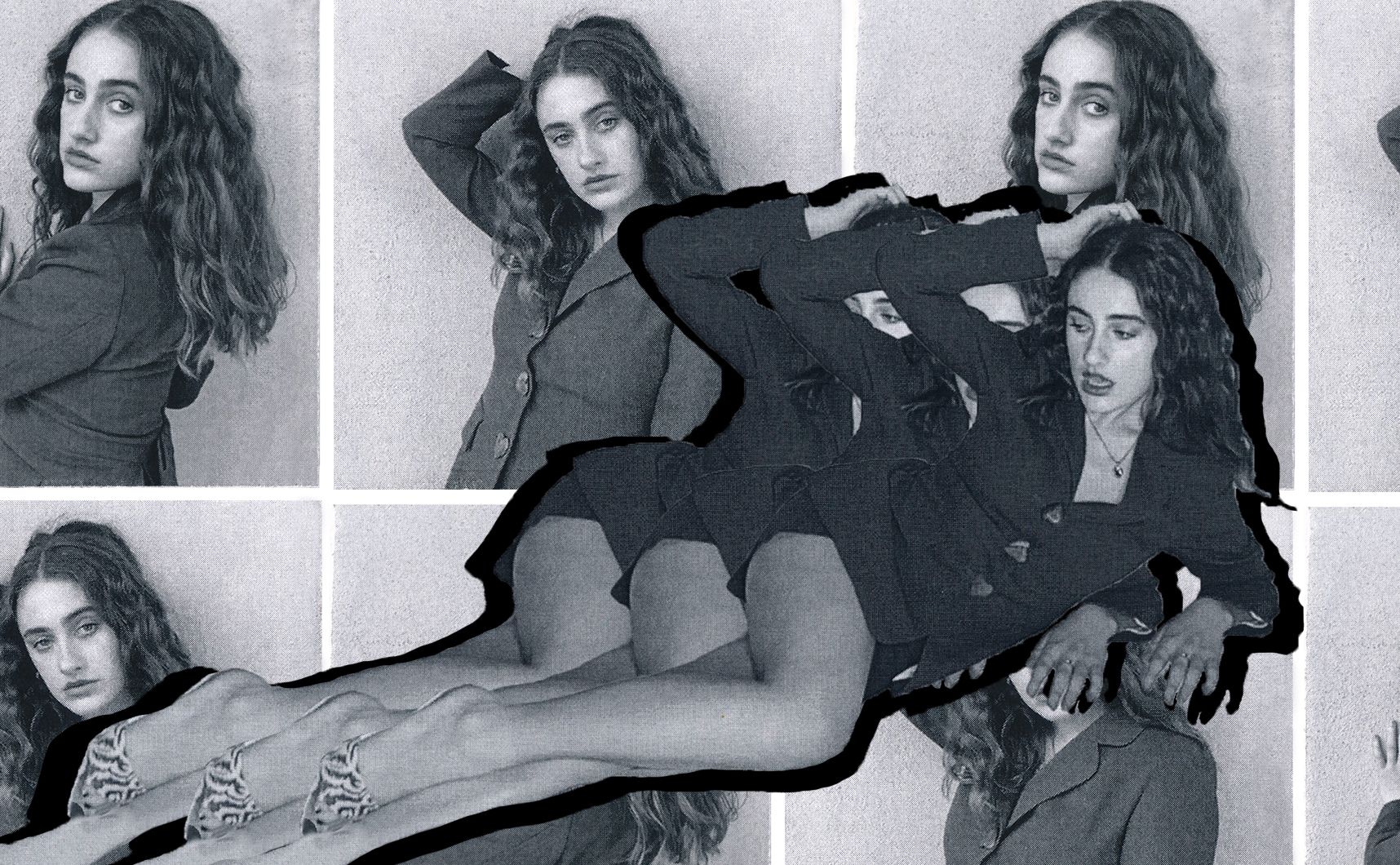
IMBORNONE: I remember the first time I really recognized you as a standout comedian was in the “It’s L.A.” video that you made.
SENNOTT: I’ve seen a couple people tweeting at it, being like, is this the girl from Shiva Baby? Like LOL, yes. There’s a few things about that kind of a comedy bit: Dress hot. Someone else is holding the phone. It’s under one minute. And it can’t feel too forced.
IMBORNONE: Do you think the internet makes becoming famous more democratic or less democratic?
SENNOTT: More, to a point. You can get your voice out there on Twitter. You can do stuff without the cost— you can live in Minnesota and then move to L.A. later. The track? Minnesota, Twitter, L.A. But I don’t think it’s everything’s equal now. I’ve been really into two voices on twitter, Helena—she’s in love with her mailman, she will make a meal out of a Dorito and a pickle. And I love Raina as well. I’m walking in a circle and it feels so good. Do you walk when you talk?
IMBORNONE: Yes.
SENNOTT: As soon as I stop walking I completely run out of thoughts.
IMBORNONE: That’s when this interview is over. Is there something you could tell me that might surprise me?
SENNOTT: I wish I could hang out with every person who knows me and doesn’t like me and make them like me, even if I don’t even like them.
IMBORNONE: How far back does that list go? Your whole life long of people?
SENNOTT: I’d say so.
IMBORNONE: That’s normal; you’re being honest. Where would you love to see yourself in fifteen years?
SENNOTT: I probably want to have kids.
IMBORNONE: Boys or girls?
SENNOTT: Girls. Do you agree?
IMBORNONE: No!
SENNOTT: You want boys?
IMBORNONE: Yes! Girls are such a problem—me, for one.
SENNOTT: Is this one of those things where I can change my answer? No, I’m going to stay firm. Girls. And I would love to have a big family. That feels expensive and impossible, but I would love to. So, a lot of kids, artistically fulfilled, and with someone that I love. Okay, basically I want it all.
IMBORNONE: Can a woman have it all?
SENNOTT: I would say that actually women cannot have it all, because the second I started dating my boyfriend, I cannot poop at his house because I’m afraid, and then my system is backed up, and then I’m eating less healthy food—because if your boyfriend is like let’s go to this place, and you’re like of course, and then your system is all backed up—you can’t get something without something else being taken away. You get a little something and then they take something else away.
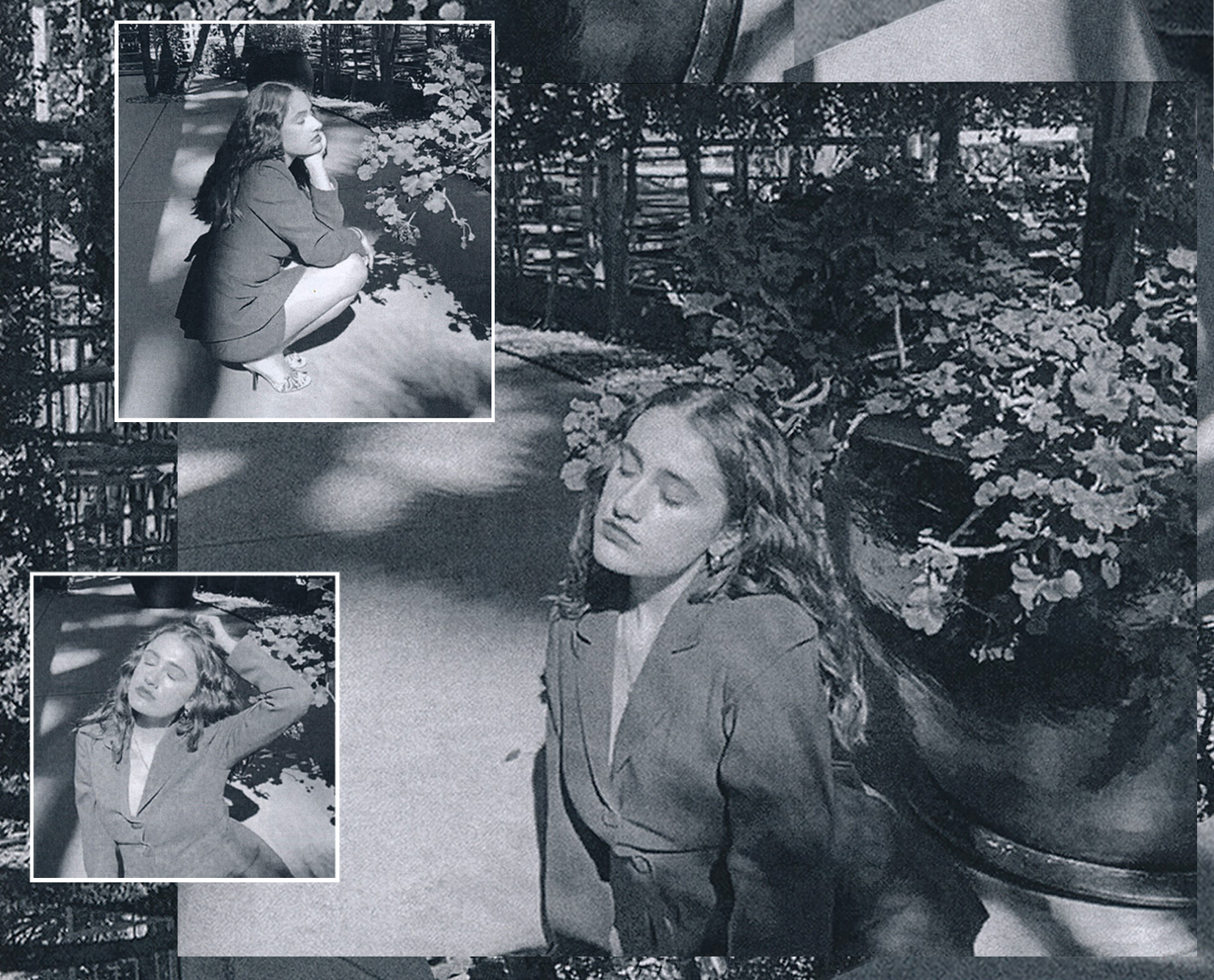
IMBORNONE: And where is Harriet Tubman on the twenty dollar bill?
SENNOTT: That’s the other thing. This year is so much about reading stuff in the news that’s supposed to happen, and then literally nothing happens. You know what they love to say? Good news. And then the experts say that the pandemic is far from over.
IMBORNONE: If the pandemic could talk, what would it say?
SENNOTT: She doesn’t even have to speak, she’s done enough. Wait—that’s a good question—now I’m asking you questions: is the pandemic a girl?
IMBORNONE: That’s a great question. And it brings up another great question—why do we oftentimes make scary, looming things feminine?
SENNOTT: Yes! Corona is always a she, never a he. Have you ever heard miss ‘rona referred to as a man? No. And why is that? Honestly, it’s male; it’s male to wreak havoc in such an uncontrollable way.
IMBORNONE: The pandemic is literally like, “you can’t hang out with your friends.”
SENNOTT: It’s male. We’ve decided the pandemic is male. A beautiful baby boy.
IMBORNONE: I’ll see you at the next Recess show, when the pandemic is over, in seven years.
SENNOTT: The second the pandemic’s over we are meeting at the remnants of the CBD pop-up shop.


